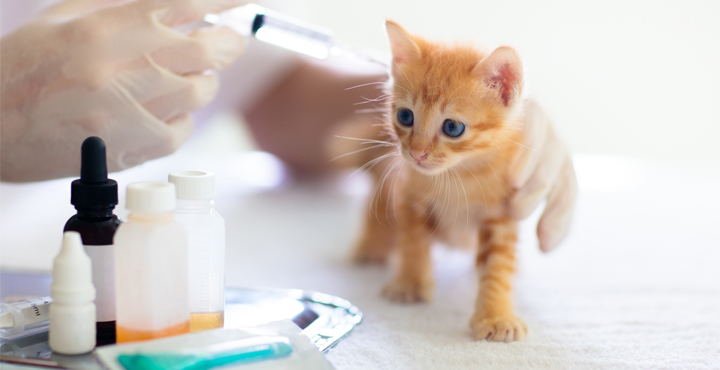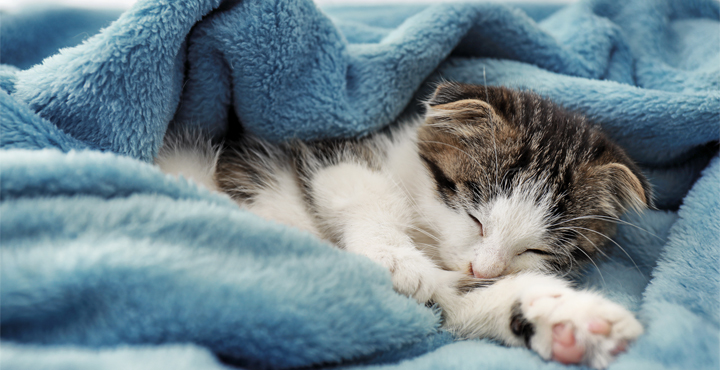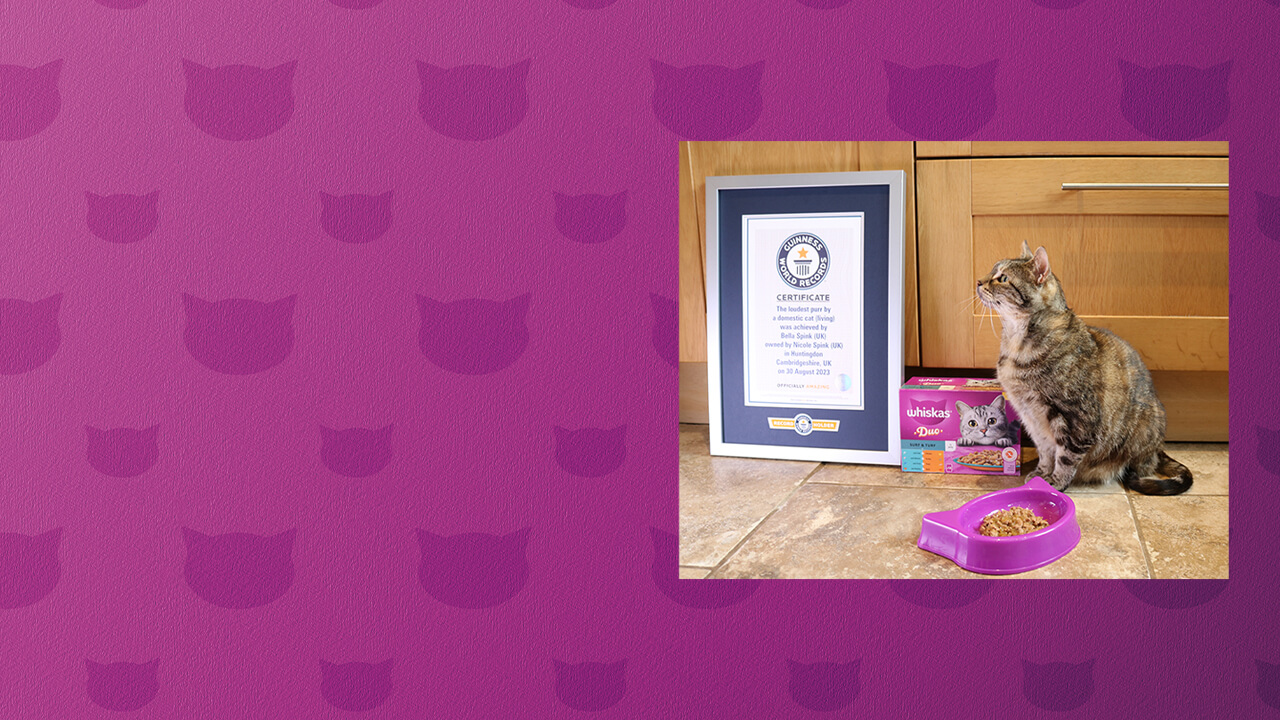
As soon as you bring your new kitten home, they're relying on you to take good care of them. So register them with your local vet as soon as you can. It’s also a good idea to keep all their health documents – and the vet’s phone number – in one handy place. You might want to consider taking out pet insurance too.
The journey
Your kitten might be a bit wary of their cat carrier. To get them used to it, try putting it out a few days before you’re going to need it. Place something inside that smells of your kitten – like a toy or blanket – to reassure them that it’s okay. When you put your kitten inside the carrier for their trip to the vet, make sure it’s locked to keep them secure.
First appointment
When you get to the vet, keep your kitten inside their carrier until you go into the examination room. During the check-up, stroke and talk to your kitten to help them feel secure. If they're comfortable during this first visit, they're more likely to be relaxed on future visits.
At your kitten’s first appointment, the vet will give you lots of information and advice about how to keep them in the best physical and mental health.
Routine questions your vet might ask
• Is your kitten alert and active?
• Is your kitten eating and drinking?
• Is your kitten vomiting or retching?
• Is your kitten passing urine and faeces normally?
• Is your kitten coughing or wheezing?
• Is your kitten pawing at their eyes or ears?
• Is your kitten showing any signs of pain?
When does your kitten need more urgent attention?
Occasionally, your kitten might need immediate treatment by the vet. The sooner your kitten gets medical help, the sooner they can begin to recover. Here are some symptoms that might need urgent attention:
• Blood in urine or poo
• Diarrhoea – pooing more than twice an hour
• Straining in the litter box with no results
• Vomiting more than three times an hour
• Lethargy
• Weight loss in a short time
• Laboured breathing
• Flinches or cries if touched
• Something hanging out of their mouth (eg string or tinsel)
• Change in “normal” behaviour
During the check-up, stroke and talk to your kitten to help them feel secure.
The journey
Your kitten might be a bit wary of their cat carrier. To get them used to it, try putting it out a few days before you’re going to need it. Place something inside that smells of your kitten – like a toy or blanket – to reassure them that it’s okay.
Subscribe to our newsletter to receive a welcome discount, useful tips and exciting news about our products.
Discount code valid until 30.04.2024 on a purchase of WHISKAS® products on www.zooplus.co.uk. Zooplus minimum order £10, code cannot be used in conjunction with other offers or discounts. Code valid for one time use.













